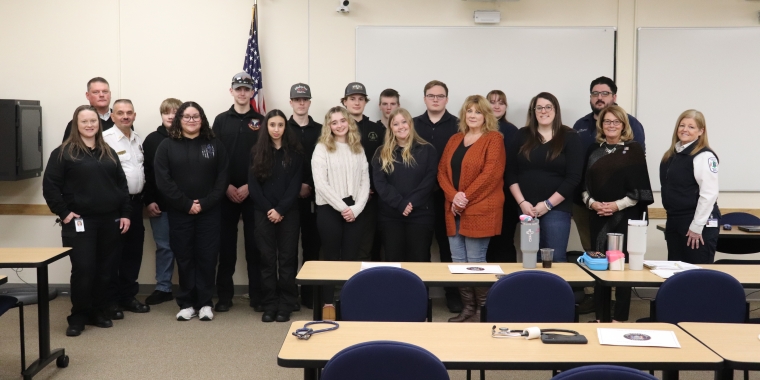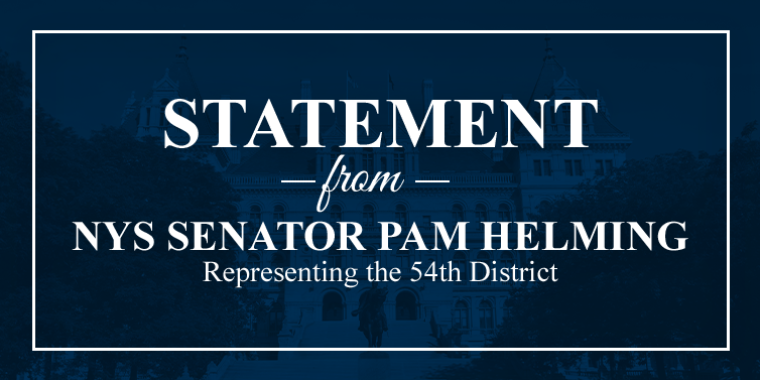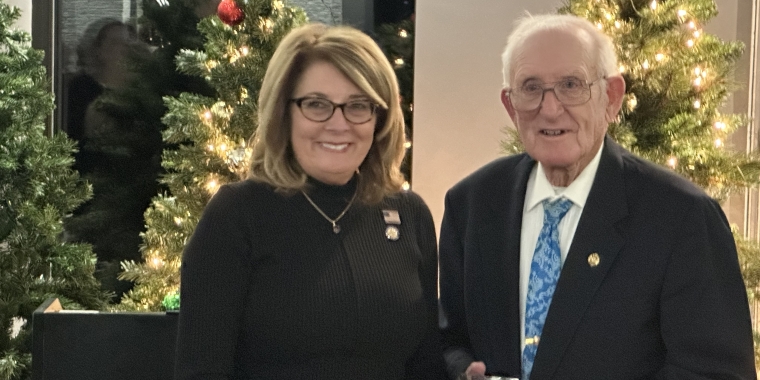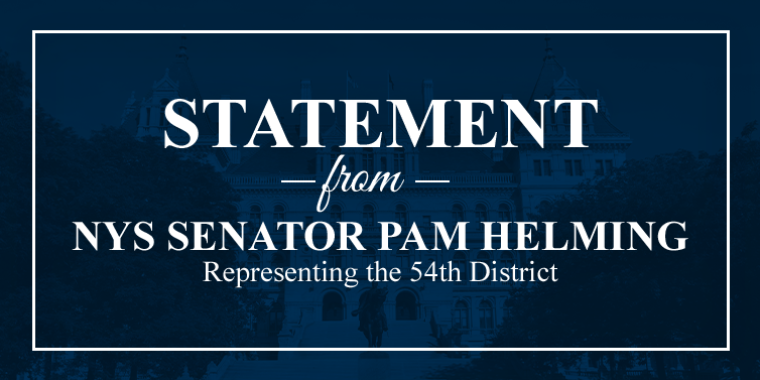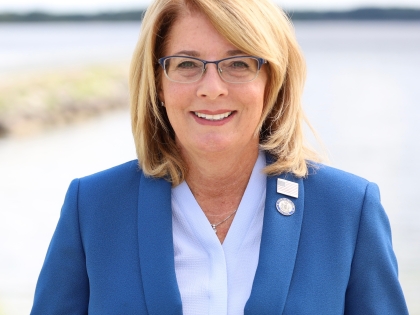
Senator Helming’s Restored Funding Supports Fight Against Invasive Species
Jonathan Monfiletto - 315-568-9816
August 8, 2017
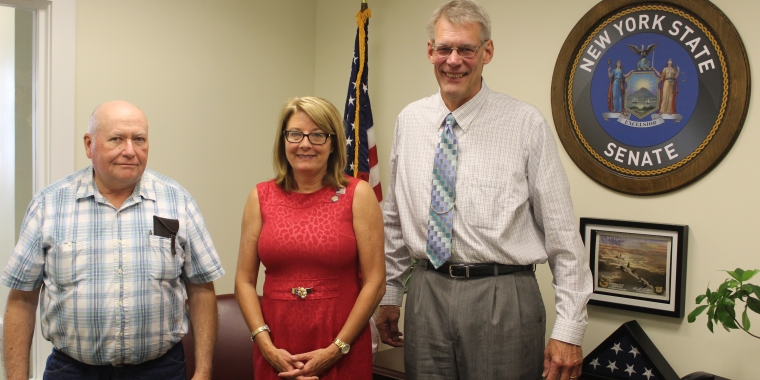
Senator Pamela A. Helming (R,C,I-Canandaigua) is proud to announce that funding for special grants that she helped restore in this year’s New York State budget is enabling emergency research to combat a new invasive species that is threatening our farms. Senator Helming led the efforts to restore funding for the New York Farm Viability Institute, which funds a wide range of farmer-reviewed agricultural research projects.
The institute has now allocated emergency funding to Cornell University’s New York State Agricultural Experiment Station in Geneva to begin its research of an invasive species known as the allium leafminer. As the Senate Chair of the Legislative Commission on Rural Resources, Senator Helming oversees funding and matters related to groups such as the New York Farm Viability Institute and the Agricultural Experiment Station.
“As the New York State Senator of a predominantly rural district with agriculture as its largest industry, I am glad to have the opportunity to serve as the Senate Chair of the Legislative Commission on Rural Resources. I was able to successfully advocate for the vital investments that support farming in the Finger Lakes region and throughout New York State, and I am particularly pleased to see how this restored funding for the New York Farm Viability Institute has already paid off. This research into invasive species is vital to a healthy agriculture industry, and I look forward to seeing the results of the Agricultural Experiment Station’s work,” Senator Helming said.
Senator Helming recently met with David Grusenmeyer, the New York Farm Viability Institute’s Executive Director, in her District Office in Geneva to talk about the institute’s work to support farmers and further agricultural research as well as how she can best serve those interests as both State Senator and Senate Chair of the Legislative Commission on Rural Resources. In that meeting, Senator Helming and Mr. Grusenmeyer also discussed the allium leafminer invasive species that, as of this spring, has been discovered in five southeastern New York counties.
Mr. Grusenmeyer explained that the invasive species is an insect that starts out in the leaf of a plant, moves through the stem to the bulb, and then reproduces worms that begin the cycle all over again and continue to harm the plant. The pest has spread fast and has the potential to devastate New York’s allium crops, such as onions, garlic, leeks, shallots, chives, and scallions. The annual value of New York’s onion and garlic crops alone are $40 million and $20 million, respectively, making it crucial to start this research work as soon as possible.
Mr. Grusenmeyer said he received a call from Dr. Brian Nault, an entomologist at the Agricultural Experiment Station, about a U.S. Department of Agriculture grant that required matching funds to support research into this new invasive species. The New York Farm Viability Institute Board of Directors voted unanimously to honor Dr. Nault’s request through a Focus Grant that the institute uses to fund important, timely projects that need to be done immediately and should not wait for the regular grant round or other sources of state funding.
“The 1-to-1 leveraging essentially doubles the amount of work that can be done, and Dr. Nault will be able to start immediately working on controls for this devastating invasive species. NYFVI has quickly stepped up to this challenge, and now we hope that Dr. Nault can quickly find some effective controls,” Mr. Grusenmeyer said.
“Invasive species pose a dangerous threat to the vitality of both a vibrant agriculture industry and pristine bodies of water, both of which we have in the Finger Lakes region and throughout New York State. I am so glad that with its restored funding in the New York State budget, the New York Farm Viability Institute was able to provide Cornell University’s Agricultural Experiment Station with a grant to begin looking for ways to combat this threat from the allium leafminer. I hope Dr. Nault is able to find a solution quickly to avoid this devastation,” Senator Helming said.
Senator Helming’s meeting with Mr. Grusenmeyer included Jim Fravil, who serves as the New York Farm Viability Institute’s Secretary/Treasurer and is also a farmer in Seneca County. Together, the group talked about some of the issues facing the agriculture industry, such as the need to produce a capable, qualified workforce in the increasingly high-tech world of farming, techniques that farmers use to both support the environment and boost their production, and ways that farmers can remain sustainable in terms of profitability.
Senator Helming represents the 54th Senate District, which consists of Seneca and Wayne Counties, parts of Cayuga and Ontario Counties, and the towns of Lansing and Webster. For more information, please visit Senator Helming’s website, or follow @SenatorHelming on Facebook or Twitter.
###
Share this Article or Press Release
Newsroom
Go to Newsroom